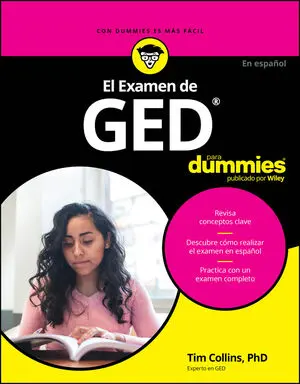The questions on this portion of the test are often very topical, including subjects like sustainability and environmental issues, population issues, cultural diversity, and migration. You won't have to know anything about the specific countries that are mentioned; you'll just need to be able to analyze and evaluate the supplied text or graphics, as in the following practice questions, which are based on a transcript from a fictional newscast.
Practice questions
The practice questions refer to the following newscast.World Environmental NewsGood evening and welcome to World Environmental News.
Our stories this evening: cyclones in Korea, hurricane near Mexico, flooding in Europe and India, volcanic eruptions in New Guinea, drought in Australia, tornadoes in the United States, hailstorms in Italy, earthquakes in Iran, and locusts in Denmark.
Now, let's look at our top stories.
Drought in Australia: The wheat fields west of Canberra, New South Wales, are in great danger today because of the ongoing drought. If the drought continues, farmers may have to write off this year's entire crop, and this will likely lead to financial ruin for many of them. To add to the misery, hundreds of thousands of sheep had to be sold because there was not enough water for them to drink.
Locusts in Denmark: The unseasonably warm weather in Denmark is proving to be inviting to the lowly locust, a major crop-eating pest. Normally found along the Mediterranean coast, the locust recently has been found far from its normal habitat. These discoveries in southwest Denmark are causing concern because locusts have not been seen in Denmark for more than 50 years.
Hurricane near Mexico: Hurricane Herman is losing force off the Pacific coast of Mexico. The country is giving a collective sigh of relief as the hurricane winds down.
For wine drinkers: And a last note for you wine drinkers. The recent violent hailstorms in Italy have devastated vineyards, and wine producers are warning of a poor grape harvest. This means lower wine production and, consequently, higher prices.
There's more as nature lashes out. Tune in again for more World Environmental News.
- How does extreme drought cause financial problems for farmers?
A. Farmers lose their entire year's crop and income. B. Selling off large herds of sheep at once leads to much lower prices and fewer sheep for future breeding stock. C. There may be a minor problem, but crop insurance covers these losses. D. Choices (A) and (B).
- Why is the finding of locusts in Denmark significant?
A. It reinforces the idea of climate change and global warming. B. Prevailing winds have shifted. C. Foreign ships carried insects, and more stringent inspections of ships are required. D. It is an isolated incident and has no real significance.
Answers and explanations
- The correct answer is Choice (D).
The extreme drought conditions in Australia led to both crop failures and the need to sell off far more sheep than usual. Both represent financial losses. Therefore, Choices (A) and (B) are correct. Although Choice (C) may be true, no information offered supports the idea that crop insurance exists for these farmers.
- The correct answer is Choice (A).
Because of unseasonably warm weather, locusts were found in Denmark. Locusts are drawn to warm weather. The fact that Denmark, a northern European country, is warm enough to allow locusts to survive means that the local climate must be warming. Although the newscast doesn't say so, in the context of all the other information presented, this fact supports the argument for climate change. You must interpret the information to arrive at the correct conclusion.






